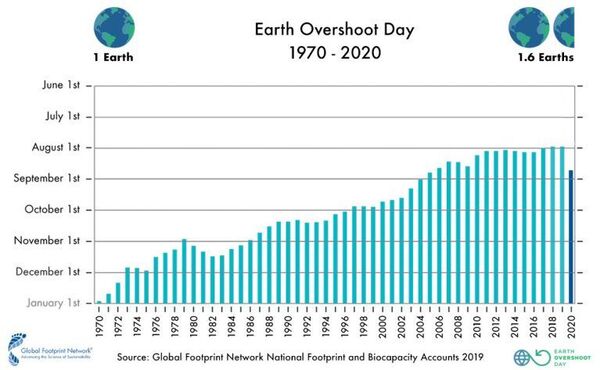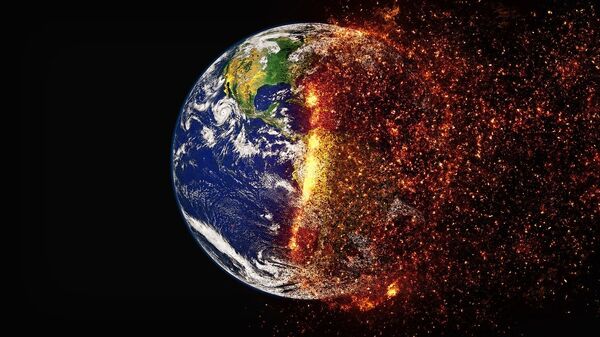Laurel Hanscom, chief executive of the Global Footprint Network, explained to the New York Times that in order to arrive at the date of August 22, 2020, the environmental research organization examined more than 15,000 data points per country around the globe, most of them sourced from the United Nations.
The Earth’s biocapacity, or resources regenerated by the planet annually, are then compared to humanity’s ecological footprint, which includes annual human resource demands. In 2019, Earth Overshoot Day fell on July 29.
Researchers calculated the date using this equation: (Earth’s Biocapacity / Humanity’s Ecological Footprint) x 365 = Earth Overshoot Day.

However, the sustainability of these results throughout the next few years seems unlikely without a number of changes, such as ones related to energy production and consumption, taking place.
“The fact that Earth Overshoot Day is later this year is a reflection of a lot of suffering, and the reflection of imposed changes to our lives,” Hanscom told the New York Times. “I don’t think there’s a silver lining to that.”
These results follow a number of positive reports concerning the environment amid the ongoing global pandemic.
Earlier in the pandemic, NASA revealed that the average concentrations of atmospheric nitrogen dioxide in the skies of the northeast US were lower in March 2020 than any March previously measured since 2005.
Not long after NASA’s revelation, the UN World Meteorological Organization and Copernicus Atmosphere Monitoring Service (CAMS) disclosed that the largest documented ozone layer hole above the Arctic had closed.
However, when asked whether the lockdowns and other pandemic-related restrictions impacted the ozone hole, CAMS explained that this particular development was “driven by an unusually strong and long-lived polar vortex.”
“It is a coincidence that the timing has lined up with the local decreases in pollution due to coronavirus-related lockdowns.”
When it comes to the future of the Earth Overshoot Day, Global Footprint Network founder and President Mathis Wackernagel claimed, “The tragedy of this year is that the reduction of carbon emissions is not based on a better infrastructure such as better electricity grids or more compact cities.”
"We need to move the date by design, not by disaster,” he explained to German public international broadcaster Deutsche Welle.


